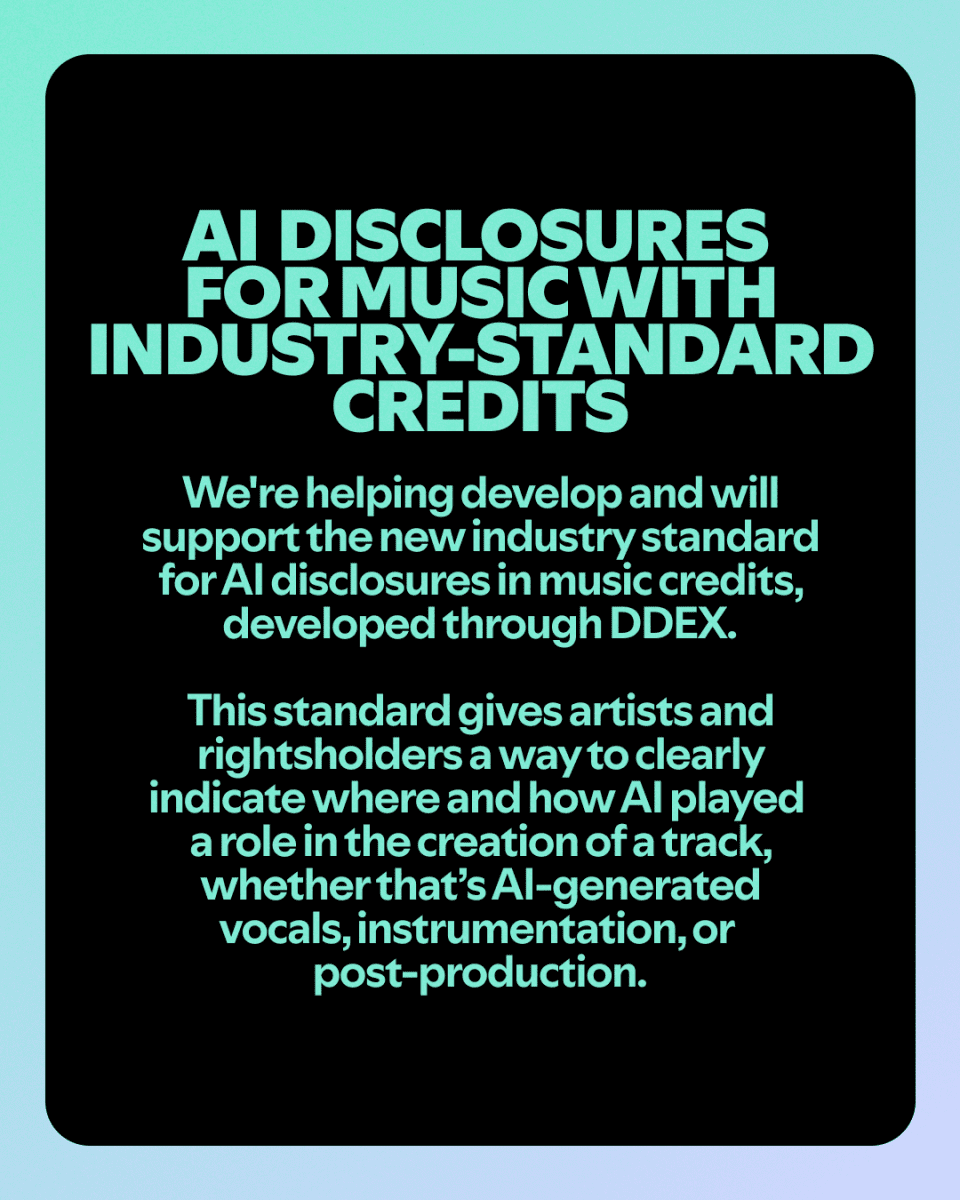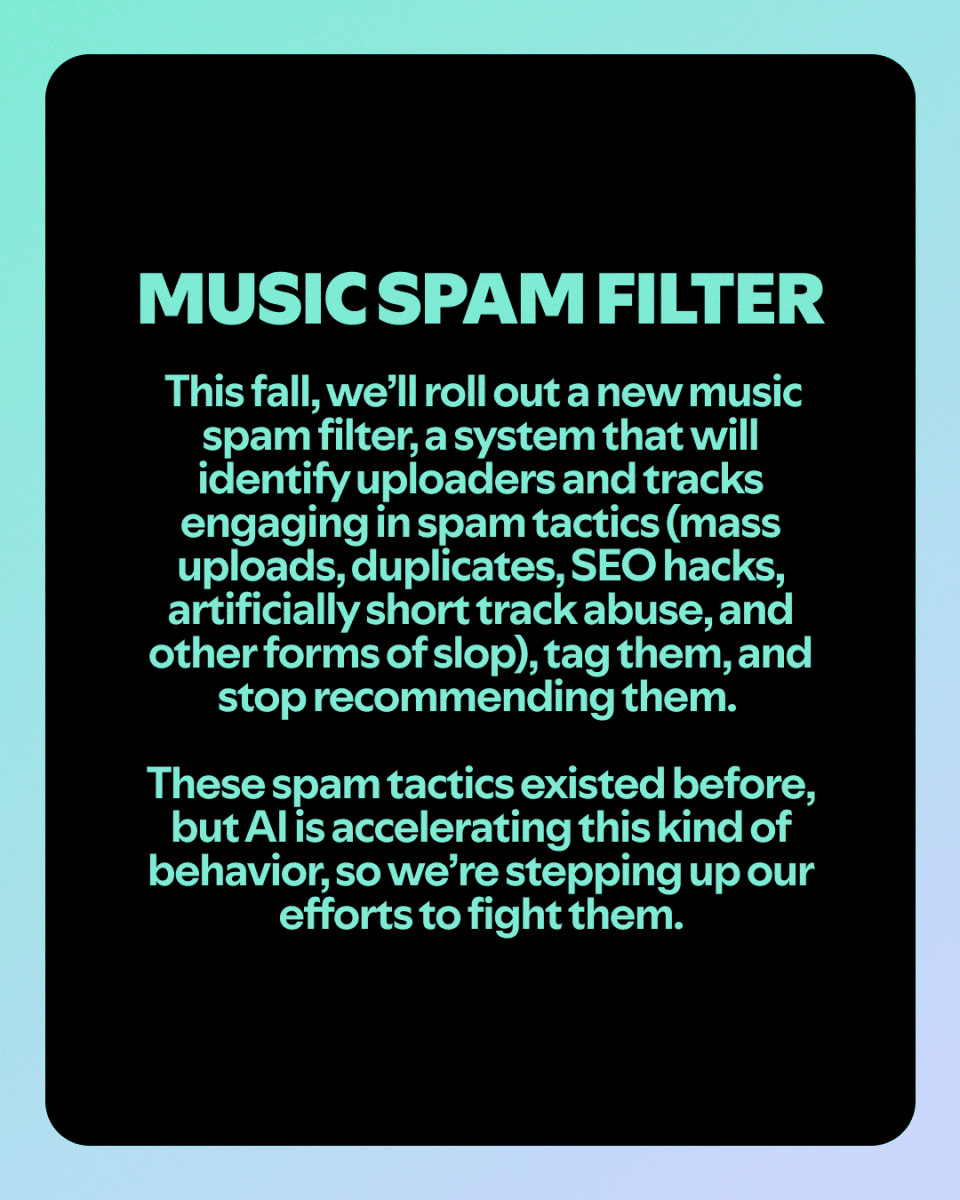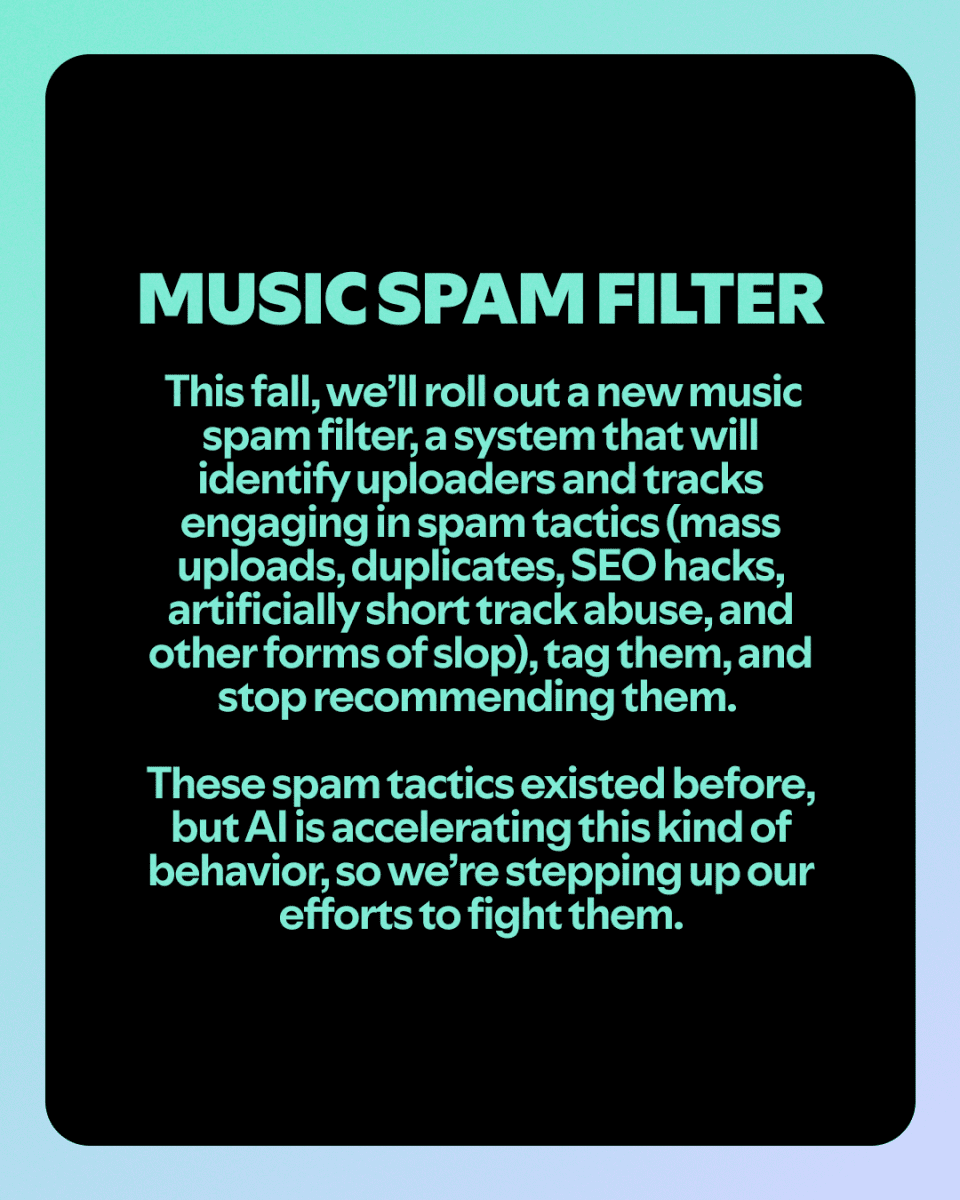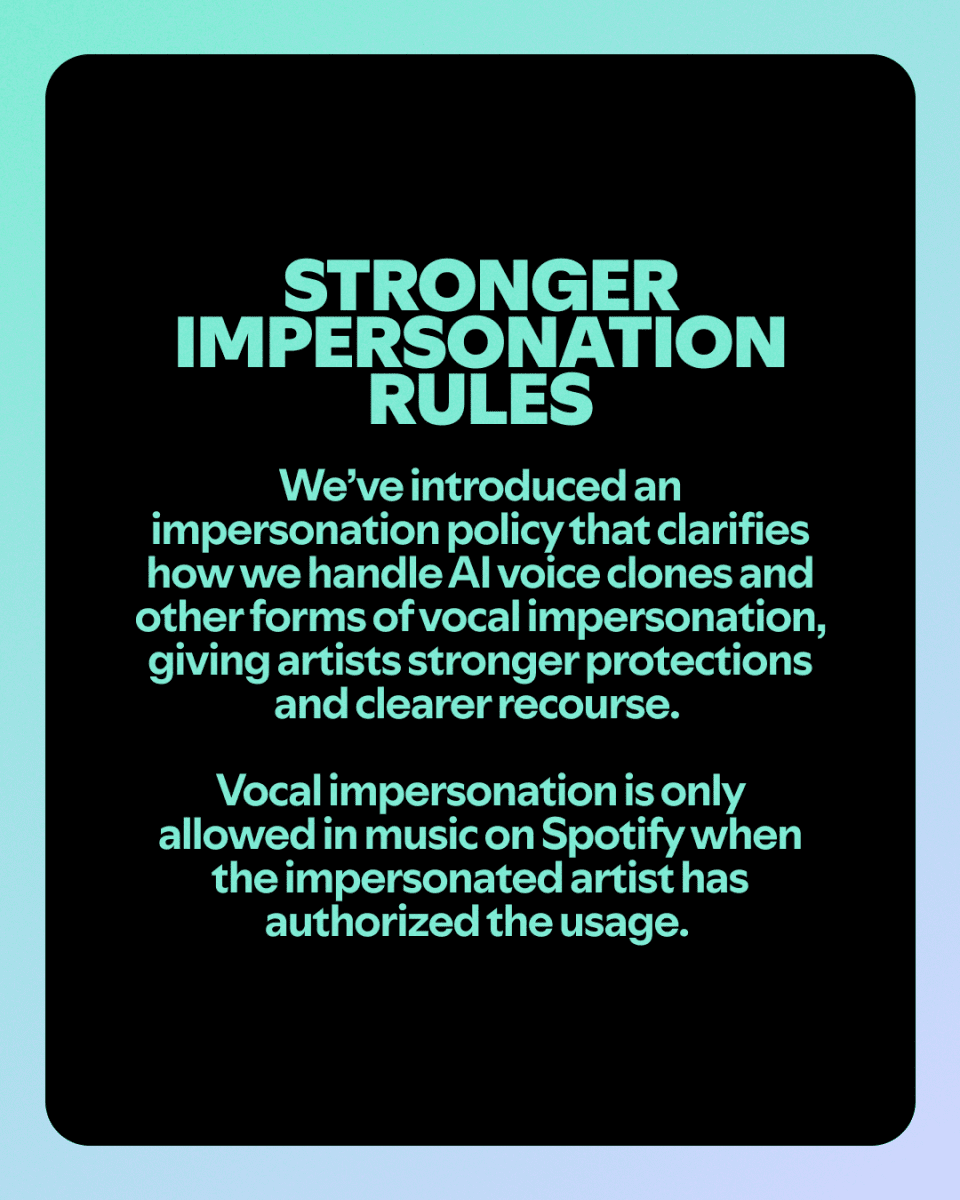Spotify is taking significant steps to protect the authenticity of its platform by introducing comprehensive updates to its artificial intelligence (AI) policies. These revisions aim to tackle unauthorized AI voice cloning, curb the spread of low-quality spam content, and enhance transparency around AI-generated music.
The company’s refreshed approach balances encouraging responsible AI innovation with robust defenses against misuse that could harm both artists and listeners.
This policy update arrives amid growing recognition of AI’s expanding role in music creation. Sam Duboff, Spotify’s Global Head of Marketing and Policy, highlighted the nuanced reality of AI integration in the industry.
“AI usage spans a broad range, with creators incorporating it at different stages of their artistic process. Our new standards will enable more precise and detailed disclosures, avoiding the oversimplified notion that a track must be either fully AI or entirely human-made,” Duboff explained.

Spotify Implements the DDEX Standard to Enhance Music Credit Transparency
To further promote clarity, Spotify is adopting the forthcoming DDEX (Digital Data Exchange) industry standard for AI music labeling. This initiative moves beyond a simplistic “AI or not AI” classification, recognizing the diverse ways AI can contribute to music production.
Through the DDEX framework, record labels, distributors, and partners will provide standardized disclosures about AI involvement directly within track credits.
This system allows for detailed reporting on AI’s role-whether in vocals, instrumentation, or post-production-offering a richer understanding of how AI tools shape the final product.

“AI’s role in music creation is multifaceted, and this industry standard will facilitate more accurate and nuanced disclosures. It prevents forcing tracks into a misleading binary of AI versus non-AI,” Duboff reiterated.
Although the DDEX standard is still evolving, Spotify has already secured commitments from 15 labels and distributors to implement this technology, aiming to foster broader industry-wide adoption.

Introducing Spotify’s Advanced Music Spam Detection System
In response to the surge of subpar releases, Spotify is launching a sophisticated spam detection filter. This tool is designed to identify and reduce the presence of low-quality or deceptive content flooding the platform.
Executives pointed out that AI has simplified the process for bad actors to mass-produce uploads, duplicate tracks, and exploit search engine optimization tactics to manipulate Spotify’s recommendation algorithms. The new filter aims to detect these manipulative behaviors, flag offending tracks, and prevent them from appearing in user recommendations.
The rollout will be gradual, with careful calibration to ensure genuine artists are not unfairly impacted.
Alongside this, Spotify is enhancing its partnership with distributors to address “profile mismatches,” a fraudulent practice where unauthorized music-AI-generated or otherwise-is uploaded under another artist’s name, often a more prominent one.
By collaborating closely with distributors, Spotify intends to intercept these deceptive uploads before they reach listeners.

Strict Prohibition of Unauthorized Deepfake Content on Spotify
Spotify has also reinforced its stance against unauthorized AI-generated impersonations. The updated guidelines explicitly ban AI voice clones, deepfakes, and any form of vocal mimicry without the artist’s consent, with such content subject to removal.
This policy safeguards artists’ identities, which are increasingly at risk due to advanced AI technologies, ensuring that only those who willingly license their voice for AI projects retain control over their likeness.
Nevertheless, Spotify remains supportive of AI’s creative potential when used ethically.
“Our goal is not to penalize artists who integrate AI responsibly and authentically. We believe AI tools can unlock new creative possibilities,” said Charlie Hellman, Spotify’s VP and Global Head of Music. “However, we must firmly counteract those exploiting AI to deceive the system. Protecting against these abuses allows the positive aspects of AI to flourish,” he added.


















0 Comments